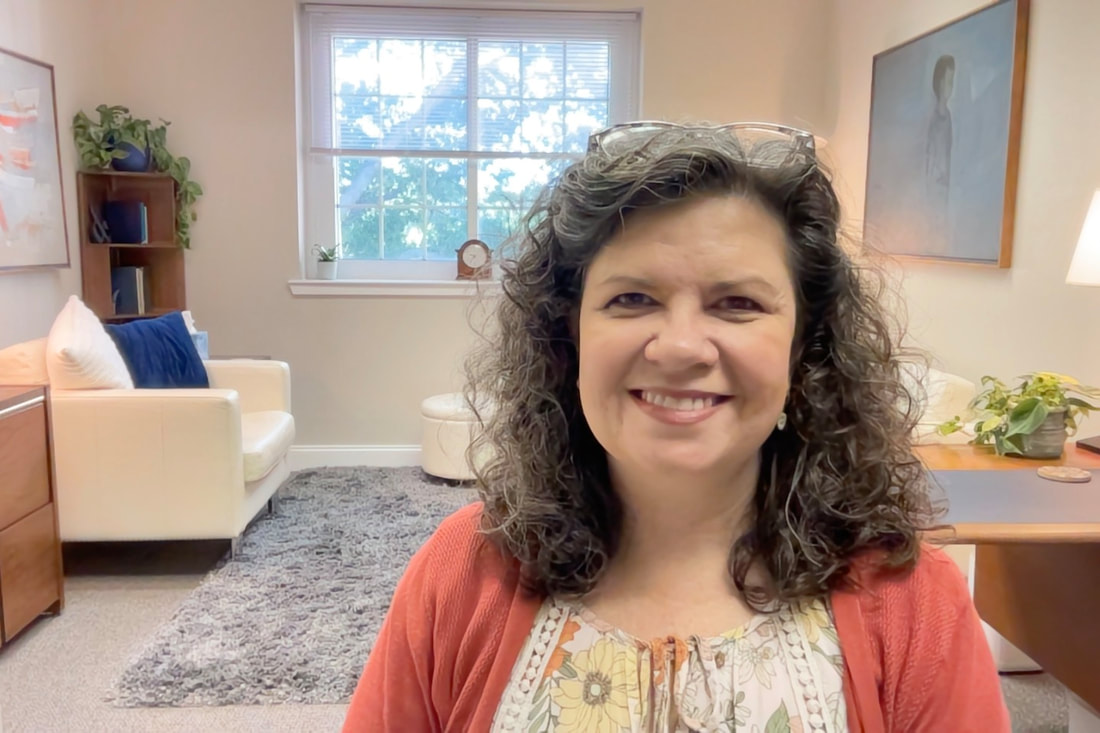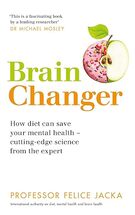|
As the number of cases of COVID-19 increase, so does our collective anxiety. It can be difficult to know what tomorrow, next week, or next month will bring. This lack of expectations and being unable to plan can heighten anxiety. Routines we may have worked hard to build and which support our work-life balance and mental health are thrown off. And many of us find ourselves isolated from our usual social supports. In the video below, clinical psychologist Dr. Alli Mattu addresses important coping skills for working from home, social distancing without feeling isolated, and managing information related to the COVID-19 public health crisis without feeling overwhelmed. The following additional resources can help individuals and communities navigate this stressful time. Remember, we're all in this together. CDC: COVID-19 Resources Latest updates, tips and resources by the US Centers for Disease Control. Living With Mental Illness During COVID-19 Outbreak– Preparing For Your Wellness This webpage provides information and wellness tips for individuals living with mental health conditions during the COVID-19 outbreak. Mental health and wellness during a public health crisis Dr. LaGenia Bailey, a former DBSA board member, discusses tips on how to stay well during this public health crisis. In this podcast, she addresses the benefits of mindfulness practice, lifestyle habits, and ways to stay connected with others to avoid isolation. COVID-19 Mental Health Support Line: 833-986-1919 Texas Health and Human Services has launched a 24/7 statewide mental health support line to help Texans experiencing anxiety, stress or emotional challenges due to the COVID-19 pandemic. People can call the Statewide COVID-19 Mental Health Support Line 24 hours a day, 7 days a week toll-free at 833-986-1919. Operated by the Harris Center for Mental Health and IDD, the support line offers trauma-informed support and psychological first aid to those experiencing stress and anxiety related to COVID-19. Seven Crucial Research Findings that can Help People Deal with COVID-19 Psychological research on past crises can help people cope with the daily — sometimes hourly — news flashes about the coronavirus. How to Transition to Seeing Your Therapist Online Continue the work of therapy even from a distance. (And yes, Dr. Novinski offers sessions via Telehealth.) Psychologists’ Advice for Newly Remote Workers As employers close offices to slow the spread of COVID-19, here’s advice from I/O psychologists on how both managers and employees can work more effectively during this time. Dial 2-1-1 If you need assistance finding food, paying for housing bills, accessing free childcare, or other essential services, visit 211.org or dial 211 to speak to someone who can help. Run by the United Way. COVID-19 Ancillary Costs The HealthWell Foundation announced a COVID-19 Fund that provides up to $250 in assistance with ancillary costs associated with COVID-19. Grants awarded through the fund will provide reimbursement assistance to at risk or quarantined individuals for delivered food, medication, telehealth copays and transportation costs associated with COVID-19. Care for your Coronavirus Anxiety Staying Grounded Meditations and Calming Exercises National Domestic Violence Hotline For any victims and survivors who need support, call 1-800-799-7233 or 1-800-799-7233 for TTY, or if you’re unable to speak safely, you can log onto thehotline.org or text LOVEIS to 22522. Talking to Kids about the Coronavirus The Parent Guide to Resilience Yale University's The Science of Well-Being Yale's most popular class is now free online via Coursera. The course focuses on how to increase happiness and productivity in your everyday life. University of Pennsylvania: Positive Psychology Resilience Skills Beginning March 17, 2020, Dr. Novinski will provide the option of Telehealth sessions. In-person/in-office sessions are preferred and recommended whenever possible. However, this is an option if you know in advance that you will be unable to get to the office (e.g., in case of inclement weather, recovery from illness or injury, COVID-19 precautions, etc.). If you typically file with insurance, we will need to confirm that your specific plan covers Telehealth services for outpatient psychotherapy.
Discuss the pros and cons of Telehealth in session so that you know whether this would be a good option for you. I often say that the importance of sleep should be covered in Volume 1 of So You've Decided to go to Therapy. The link between sleep and mood has been seen over and over in research. People with insomnia are 10 times as likely to have clinical depression and 17 times as likely to have clinical anxiety as those who sleep normally. We have long known that sleep difficulties are symptomatic of depression, anxiety, and other mental health conditions. New research is revealing that the relationship between sleep and our physical and mental health is much more complex -- and malleable. For example, the more a person experiences difficulty sleeping and the more frequently they wake at night as a result, the higher the chances of developing depression even if they did not struggle with depression before. More research is being conducted on factors that contribute to difficulty falling and staying asleep, or to shifting nighttime routines. Many studies have explored the connection between screen time (i.e., blue light exposure) and sleep difficulties. The readily available connection to work, social connections, entertainment, and distraction that come from our computers and phones carries with it implications for our sleep and thereby our physical and mental health. Some clever IT professionals and start-ups have found a way to turn technology in our favor when it comes to sleep. Apps like Headspace and Calm have skyrocketed to the top of the Apple App and Google Play stores, due in no small part to their audio features that aid users in falling and staying asleep. If you find that you struggle with getting good quality sleep, consider these sleep hygiene recommendations from the National Sleep Foundation:
Think about (or discuss in therapy!) ways in which you can actively work to prioritize your sleep to help improve your physical and mental health.
I am amassing quite a collection of therapy memes. Who knew this would be a thing? My favorite part of this trend is that most of the images you see above are screenshots sent to me by patients. I love that we are able to share a sense of humor and laugh together. I say this as an inroad to breaking down some of the anxiety around entering therapy. Especially if you are entering therapy for the first time, that anxiety typically occurs in the face of the unknown. What will therapy be like? What can I expect? Will I have to lie down on a couch? Will my therapist say "tell me about your mother?" Will my therapist just silently stare at me? Colorado therapist Kelsey Shane says of therapy: You may cry, you'll probably laugh, you'll definitely grow! Therapy looks a bit different for each individual, and for each individual therapist. I do have a couch, but it's really more of a love seat. Most people are comfy but do not actually lie down. Sometimes people come to therapy for help in dealing with a very specific situation, for example, coping with a loss, making decisions about moving forward during a time of transition, or managing anxiety related to social situations. Others seek therapy to understand and shift long-standing problematic behavior or relationship patterns. Sometimes we do in fact talk about mom. Sometimes we game-plan how to resolve conflict at work or at home. Sometimes we practice mindfulness and specific breathing exercises to reduce the frequency and severity of panic attacks. Sometimes we unpack puzzling dreams. Sometimes we draw connections to books and films (our cultural mythology). Back in the day, I knew a perhaps surprising number of my patients' Hogwarts houses, and now I understand how others relate their own origin stories or redemption arcs to characters in the MCU. We do sometimes cry, we often laugh, and I am privileged to witness growth on a daily basis. If you have more questions or would like to learn a bit more about the process of therapy, you might enjoy the video below by psychologist, Dr. Ali Mattu in which he answers commonly Googled questions about therapy. As psychologist Guy Winch explains, "Much as accountants' busiest time of year is tax season in April, we therapists see our practices overflow in November and December. Why? ‘Tis the season of family gatherings."
Family gatherings have the potential to help us feel connected and loved, but even within the best of family dynamics, cooking, cleaning, and coordinating schedules can be stressful. And the fact of the matter is that not every family shares the best dynamics on display in Hallmark Holiday Specials. Family gatherings can bring old wounds to the surface, and leave many feeling less connected, less understood, and alone despite the holiday crowds. For those who live far from family and friends, singles, and those who are newly separated, divorced or grieving, the family-focused holidays can be a painful and lonely time. Add these factors to the days getting shorter, the weather colder, spending less time outdoors in the sun, and it is easy to understand how the holidays can leave us feeling stressed out and blue. The following resources can help you survive and thrive through this holiday season:
If you find yourself feeling overwhelmed with stress or sadness, know that you are not alone. Talking with a therapist about coping with the holidays specifically, or untangling long-standing relationship patterns, can be useful and help you move through the holidays and into the new year with less stress, more understanding of yourself and others, and more skills to navigate this time of year with more grace and less stress in the future. There has been a lot of talk in therapy this week about the October 20 tornadoes we experienced in Dallas. If you or people you love went through these storms, please know that it is normal to feel heightened anxiety, numbness/detachment, sadness and tearfulness, often all within the same day or hour. I have spoken with a lot of folks who not only feel really anxious, shaken and sad, but also feel guilty about feeling that way because they were not in the direct path, as if they don't have the right to feel that way. There is nothing you do or don't do, are or are not to "deserve" anxiety or depression. It is just an is. I spoke with a neighbor yesterday who said that she never really understood PTSD until she went through that storm (her home suffered damage). I explained that part of the textbook definitions of Acute Stress and PTSD are "exposure to actual or threatened death or serious injury" that occurs through directly experiencing a traumatic event , witnessing in person the event as it occurred to others, or learning that the event occurred to a close family member or close friend. Many of us in the Metroplex have recently been through that. It is ok to feel anxious and sad. That doesn't make you selfish or take away from the heartbreak you feel for those who have suffered losses. It also doesn't mean that you're going to develop PTSD. It is just an is - a response to a traumatic event. The best thing you can do is talk about it. Talk with your family, your friends, your neighbors. If the feelings are unbearable or linger for what feels too long, there are also great professionals in the area who can help you process this experience. As is usually the case, we'll all get through this together.
For more information on how to reduce weather-related anxiety and how to talk to children about their anxiety, see this post by the Anxiety and Depression Association of America. Ryder Carroll, creator of the Bullet Journal Method, strikes a great balance of practical tips and philosophy in this guide to using pen and paper to organize your life, develop the practices of mindfulness and living intentionally, and give a newfound sense of priority and urgency to your goals.
"Psychologist Ryan Howes began National Psychotherapy Day because he believed that psychotherapy as a profession has an image problem. Therapy takes place behind closed doors, so the public relies on movies and TV to tell them what therapy is like, and those depictions are rarely accurate. Howes set out to demystify therapy, educate the public about what real therapy looks like and how effective it can be, and create a fun way to celebrate therapy, rather than hide it." On the 6th annual National Psychotherapy Day, I encourage you to learn more about psychotherapy and spread the word. You can read more from Dr. Howes and learn about how psychotherapy can help cultivate self-acceptance here. I also highly recommend the Moments of Meaning video series sponsored by National Psychotherapy Day. This video series featuring therapists speaking from the heart about the transformations that take place between therapist and patient in psychotherapy. The whole series is well done and provides an insightful and moving glimpse into real therapy sessions (all stories are shared with the permission of individual patients, and altering identifying information). If you have ever wondered about the benefits, process, or new perspectives that psychotherapy might offer, take a look at this Moments of Meaning video featuring licensed clinical psychologist, Dr. John Dilley, as he shares his experience of entering psychotherapy as a patient himself. You can read more about National Psychotherapy Day here, and find the Moments of Meaning video series here.
Facebook executive, Sheryl Sandberg, is an enormously successful technology executive (named one of the 100 most influential people in the world by Time magazine in 2012), author and speaker. Over the past few weeks, she has been making the rounds on day and nighttime talk-shows promoting something much closer to her own heart, her new book, Option B: Facing adversity, building resilience and finding joy. The book, written with Sheryl's friend, psychologist Adam Grant, is at once a deeply personal reflection on Sheryl's sudden loss of her husband Dave to heart failure at age 47, and inspiring call to find meaning, purpose, and develop resilience in the face of adversity. As Sandberg writes, we are not born with a set amount of resilience, after which small and large challenges threaten to overwhelm us. But rather, resilience is like a muscle, that can be strengthened and developed throughout our lives. Sandberg and Grant worked together to write the book and to launch Option B, an organization with the mission to bring people together to support one another and share resources from experts on building resilience. OptionB.Org is dedicated to helping you build resilience in the face of adversity—and giving you the tools to help your family, friends, and community build resilience too. Here, you can read and share personal stories, join groups for solidarity and support, and find information from experts. Option B, the book and the organization, promise to be excellent resources for those coping with loss and adversity, and all those searching for meaning and joy. Here you can read excerpts or listen to the full recent interview on NPR in which Sheryl discusses her new book and advice on how to help someone who is grieving. Below you will find the full video of Sheryl's moving 2016 commencement address at UC Berkeley in which she discusses her own grief and advice on developing a spirit of gratitude and resilience. Heads Together is a UK campaign, spearheaded by the Duke and Duchess of Cambridge and Prince Harry to end stigma around mental health. This week the campaign released a video of the Duke, Duchess and Prince discussing their support of the mental health initiative. The Heads Together campaign has partnered with this weekend's London Marathon to help raise awareness and encourage people to speak up about and prioritize their mental health (all the runners will be given Heads Together headbands, modeled by the Royal Family above). “Since we launched Heads Together last May, we have seen time and time again that shattering stigma on mental health starts with simple conversations. When you realise that mental health problems affect your friends, neighbours, children and spouses, the walls of judgement and prejudice around these issues begin to fall. And we all know that you cannot resolve a mental health issue by staying silent." Here in the US, the OK to Say campaign has been working to encourage people to talk openly about mental health. So often people do not ask for or seek out the help that they need because of stigma. Sharing our stories and working as a community to encourage one another and share resources can improve and save lives.
If you are interested in continuing this conversation and showing your support, consider joining the National Alliance on Mental Illness (NAMI) annual Dallas NAMI Walks 5k coming up in on May 13. |
About the AuthorClinical psychologist Dr. Kristy Novinski contributes insights, book and film reviews, discussions of pop culture, and exploration of news and research in the field of psychology. What I'm Reading
Categories
All
|
Las Colinas Psychological Services, PLLC |
© 2023 Las Colinas Psychological Services, PLLC. All rights reserved.
|





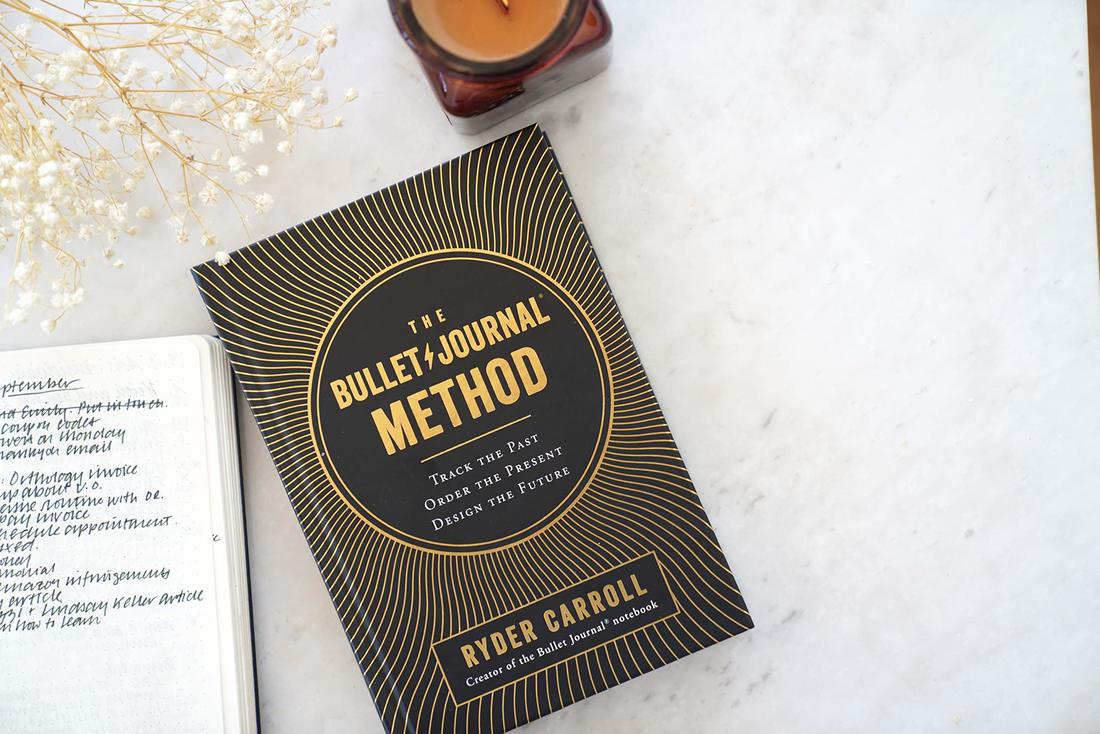
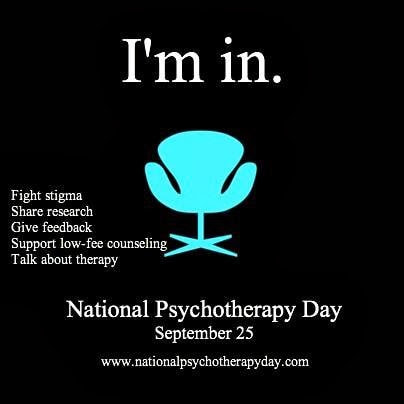
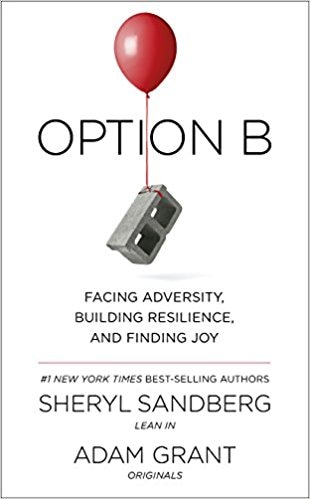

 RSS Feed
RSS Feed
